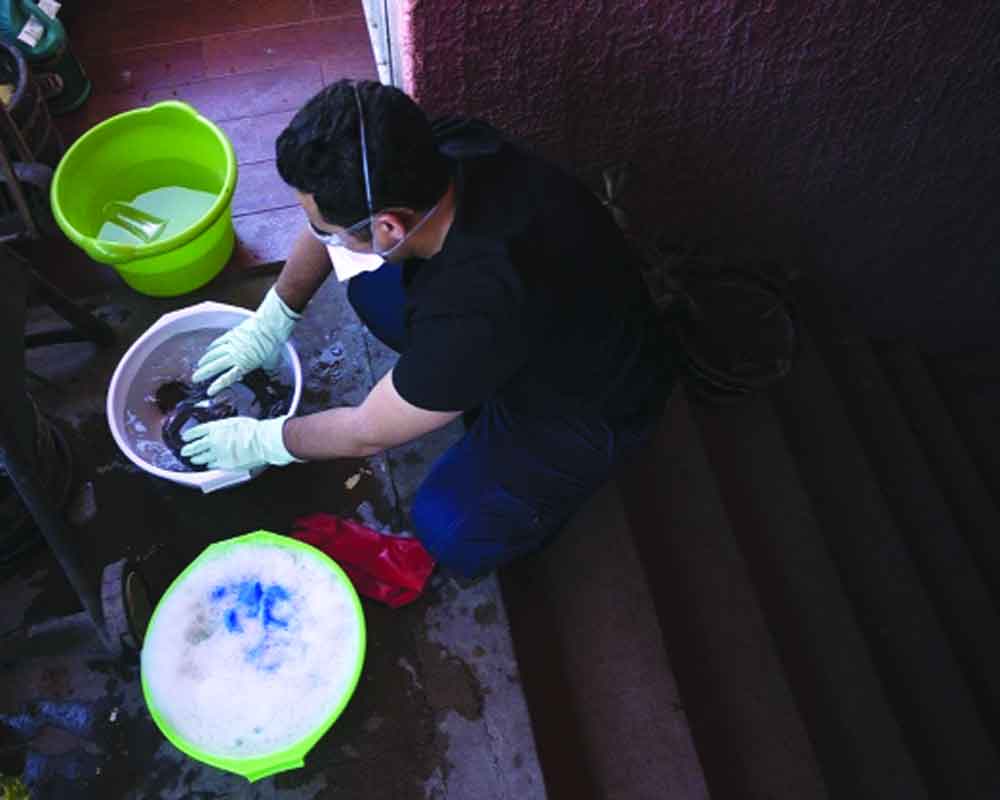Coronavirus DNA left on a hospital bed rail from the infected patients was traced in nearly half of all sites sampled across a ward within 10 hours. The trace of the contagion lasted for at least five days.
This alarming finding of a new study may explain why high number of hospital health workers are testing positive or succumbing to Covid-19.
The study by researchers from University College, London (UCL) and Great Ormond Street Hospital (GOSH), published as a letter in the Journal of Hospital Infection, shows how the virus may spread across surfaces in hospitals.
According to a report on an average 6 per cent of all confirmed Covid-19 cases are among healthcare workers. The report by the International Council of Nurses says that at least 90,000 healthcare workers have been infected with the coronavirus across the globe.
Instead of using the SARS-CoV-2 virus, researchers artificially replicated a section of DNA from a plant-infecting virus, which cannot infect humans, and added it to a millilitre of water at the similar concentration to SARS-CoV-2 copies found in the respiratory samples of infected patients.
The researchers also cautioned that the virus will likely spread within bodily fluid such as cough droplets, whereas the study used virus DNA in water. “More sticky fluid such as mucus would likely spread more easily,†warned the researchers.
They had placed the water containing this DNA on the handrail of a hospital bed in an isolation room -- that is, a room for higher-risk or infected patients -- and then sampled 44 sites across a hospital ward over the following five days.
They found that after 10 hours, the surrogate genetic material had spread to 41 per cent of sites sampled across the hospital ward, from bed rails to door handles to armrests in a waiting room to children’s toys and books in a play area. This increased to 59 per cent of sites after three days, falling to 41 per cent on the fifth day.
Dr Lena Ciric (UCL Civil, Environmental & Geomatic Engineering), a senior author of the study, said: “Our study shows the important role that surfaces play in the transmission of a virus and how critical it is to adhere to good hand hygiene and cleaning.
“Our surrogate was inoculated once to a single site, and was spread through the touching of surfaces by staff, patients and visitors. A person with coronavirus though, will shed the virus on more than one site, through coughing, sneezing and touching surfaces.â€
The highest proportion of sites that tested positive for the surrogate came from the immediate bed-space area -- including a nearby room with several other beds -- and clinical areas such as treatment rooms.
On day three, 86 per cent of sampled sites in clinical areas tested positive, while on day four, 60 per cent of sampled sites in the immediate bed space area tested positive.
Co-author Dr Elaine Cloutman-Green (UCL Civil, Environmental & Geomatic Engineering), Lead Healthcare Scientist at GOSH, said: “People can become infected with Covid-19 through respiratory droplets produced during coughing or sneezing. Equally, if these droplets land on a surface, a person may become infected after coming into contact with the surface and then touching their eyes, nose or mouth.
“Like SARS-CoV-2, the surrogate we used for the study could be removed with a disinfectant wipe or by washing hands with soap and water.
“Cleaning and hand washing represent our first line of defence against the virus and this study is a significant reminder that healthcare workers and all visitors to a clinical setting can help stop its spread through strict hand hygiene, cleaning of surfaces, and proper use of personal protective equipment (PPE),†advised the researchers.


























